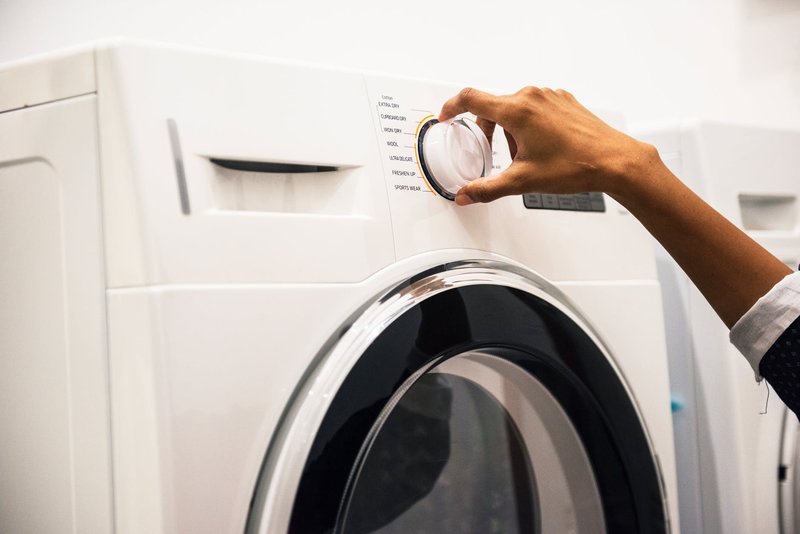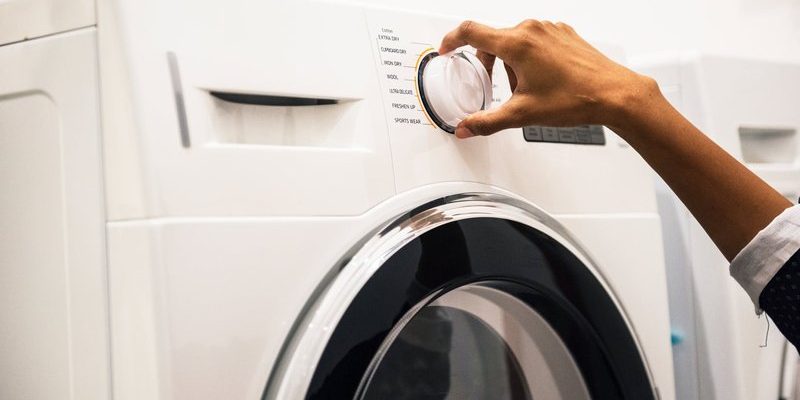
Here’s the thing—registering appliances isn’t always straightforward when you didn’t buy them yourself. Landlords usually handle the purchase and warranty, but what does that mean for tenants? Let me explain why this matters and how Whirlpool’s registration process works when appliances are part of your rental home.
Understanding Appliance Registration: Who’s Allowed to Register?
First off, appliance registration is basically Whirlpool’s way of linking the product to an owner. It helps the company track warranty, provide customer support, and sometimes offer updates or recall info. Usually, the person who bought the appliance is the one who registers it. That’s straightforward when you buy a washer or dryer for your own house. But what about renters?
When your landlord purchases a Whirlpool laundry set and installs it for you, technically, the landlord is the owner—not you. This means the landlord is the one who should register the appliances under their name. From Whirlpool’s perspective, the warranty and support go to whoever made the purchase.
That said, tenants might still want to register or at least link the appliances for practical reasons like troubleshooting or remote control syncing. But Whirlpool’s registration policy typically restricts ownership transfer details, so tenants don’t have full access.
Why Does Registration Matter for Tenants?
You might be wondering, “If the landlord already registered the washer and dryer, why should I care?” Good question. Honestly, there are a few reasons why tenants might want to be more involved.
Warranty Protection: If something breaks, knowing who holds the warranty and how to claim it can save time and stress. Sometimes landlords are slow to respond, so having direct registration or access helps tenants troubleshoot faster.
Smart Appliance Features: Whirlpool laundry sets often come with smart remotes or apps. Syncing or resetting these devices usually requires owner access. Without registration details, tenants might struggle to connect the appliance to their phone or fix remote control issues.
Maintenance and Troubleshooting: Appliance codes or error messages might prompt a service call. Registered owners get access to more detailed support and potentially faster resolution. Tenants with registration info can avoid waiting too long or guessing what to do.
So while landlords own the appliances, tenants can benefit from registration, especially if they stay for a long period or want to make the machines ‘theirs’ in a practical sense.
How Whirlpool Handles Appliance Registration and Ownership
Whirlpool’s official stance is pretty straightforward: the purchaser of the product is the owner, and only they can register the appliance for warranty and official support. That means if your landlord bought the washer and dryer, they’re the ones on record.
Here’s how the registration process generally works:
- Enter product model and serial numbers
- Provide purchaser’s contact and address details
- Agree to Whirlpool’s terms
Since landlords typically provide their contact info when registering, Whirlpool assumes they’re the primary point of contact for warranty claims and troubleshooting. Tenants don’t have a way to override this registration or claim ownership without landlord involvement.
This setup protects the manufacturer and clarifies responsibility for repairs or recalls. It also prevents confusion if an appliance changes hands multiple times.
Can Tenants Register if Given Permission?
Sometimes landlords might be okay with tenants registering appliances themselves. If that happens, Whirlpool’s system will accept the registration—but it depends on using the purchaser’s proof of purchase.
Without a sales receipt or invoice, Whirlpool may reject or flag registrations. So tenants should get explicit permission and purchase documentation if they want to register appliances themselves.
What Can Tenants Do If They Can’t Register Appliances?
If you can’t register your Whirlpool laundry machines because your landlord holds the ownership rights, don’t worry. There are still ways to stay on top of things and avoid laundry day disasters.
Ask for Copies of Registration Info: Request your landlord share proof of registration or warranty details. This way, you know who to contact if an issue arises.
Keep Model and Serial Numbers Handy: Having this info allows you to lookup troubleshooting tips, order parts, or check for recalls online.
Use Whirlpool’s Smart Features Independently: Some Whirlpool laundry appliances allow tenants to connect apps or remotes without ownership transfer. You might need to perform a remote reset or pair the device yourself. Look for instructions on syncing or resetting under your appliance model’s manual.
Document Communication: If appliances break down, keep track of requests you make to your landlord for repairs. This is especially useful if there’s a warranty claim.
Syncing and Troubleshooting Whirlpool Laundry Appliances as a Tenant
Now, let’s say you want to use Whirlpool’s smart remote or app to control your laundry machines. You might be asking, “Can I just sync the remote even if I’m not the registered owner?”
Honestly, yes—but with some caveats. Whirlpool appliances often have a pairing or reset code you enter to link the remote to the washer or dryer. This process usually involves:
- Locating the appliance’s Wi-Fi or Bluetooth code
- Resetting the remote control (battery swap might help)
- Following step-by-step pairing instructions
If you don’t have registration access, you won’t get some advanced support, but basic syncing and troubleshooting are often possible on your own. For example, if the remote isn’t responding, try a battery replacement first. If that doesn’t work, a reset code might fix the connection.
Whirlpool’s website and appliance manual usually provide detailed instructions for troubleshooting common remote or connectivity problems.
Comparing Tenant and Landlord Responsibilities for Appliance Care
It’s like sharing a car—you might drive it daily, but the title and insurance are in the owner’s name. Similarly, tenants use the appliances but usually aren’t responsible for major repairs or registration.
Landlord’s Role: Responsible for purchasing, registering, and maintaining appliances under warranty. They handle repairs and coverage claims.
Tenant’s Role: Use appliances properly, report issues promptly, and follow manufacturer guidelines like cleaning filters or running maintenance cycles.
If you’re a tenant who plans to stay a while, it’s worth having a conversation with your landlord about appliance care and access to registration info. Being clear on who does what makes life easier and avoids disputes.
Alternatives: Should Tenants Buy Their Own Appliances?
Sometimes tenants consider bringing in or buying their own washer and dryer instead of relying on landlord-supplied ones. This can give you full control:
- You register appliances yourself
- Manage warranties directly
- Personalize smart features and syncing
- Take appliances with you when moving
The downside? It might not be allowed in your lease, or it could require landlord approval. Also, you have to handle installation and removal yourself.
If you’re serious about control and worry about registration issues, buying your own Whirlpool laundry appliances can solve many headaches. Just make sure to check your lease and chat with your landlord first.
Wrapping It Up: What Tenants Should Know About Registering Whirlpool Laundry Appliances
So, can tenants register Whirlpool laundry appliances purchased by their landlords? The short answer: usually not. Whirlpool expects the purchaser—the landlord—to handle registration and warranty matters. Tenants can’t just put their name on those appliances like it’s theirs, even if they’re the ones doing laundry dozens of times a week.
That said, tenants aren’t powerless. You can still connect remotes, troubleshoot common issues, and keep tabs on your appliances by asking your landlord for registration details and proof of purchase. Being proactive helps avoid inconvenient surprises like unclaimed warranties or unhelpful support calls.
And if you want to take full ownership—literally and figuratively—consider the pros and cons of bringing your own appliances, especially smart-enabled Whirlpool models that rely on registration for full functionality.
At the end of the day, think of landlord-owned Whirlpool laundry appliances like borrowed tools: you can use them, care for them, and even tinker a bit, but the official paperwork stays with the owner. Knowing this clears up confusion and helps you make the most of your laundry setup without losing sleep over registration mysteries.
